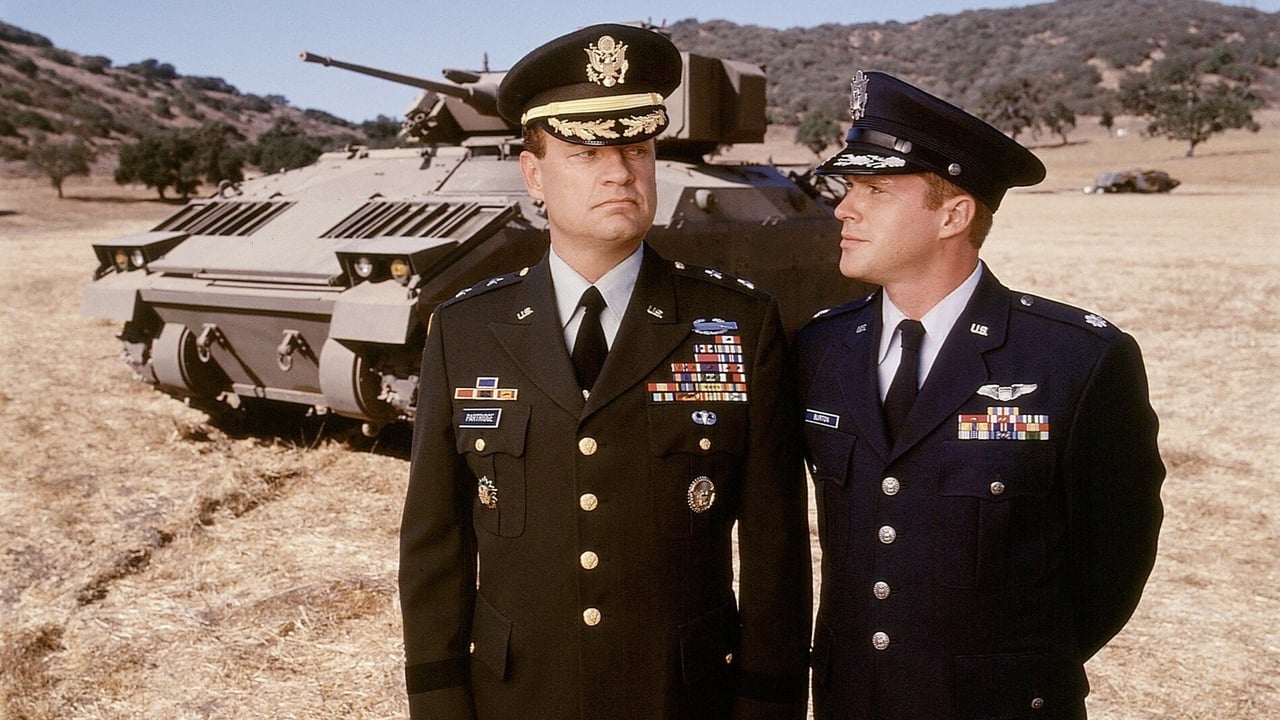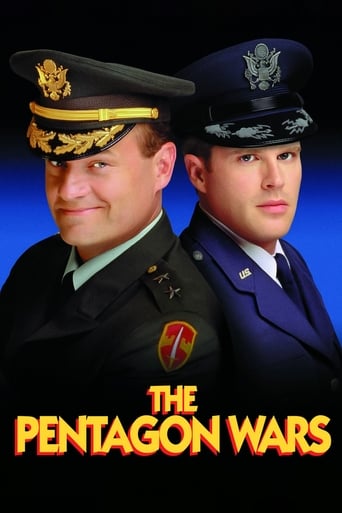

"The Pentagon Wars" is the story of one of the most expensive military fiascoes in American History, the Bradley Fighting Vehicle and its long road from whence it began. Cary Elwes stars as Col. James Burton, a man sent to help finish the Bradley project at the Pentagon. However, General Partridge played beautifully by Kelsey Grammar has other plans, to send Burton packing.Burton's plan was to complete the project, which at his time of entrance had been ongoing for nearly 20 years. With every test Burton would schedule for the Bradley, the General would find a way to make it even harder to get the results Burton needed to sufficiently pass the project. In the end, Col. Burton is reassigned and taken off the project and General Patridge thinks his headache is over.That is until a Congressional investigation by the Armed Services Committee gets underway and the General is under investigation as to why the Bradley has taken over 20 years in development and still not completed. Col. Burton finally gets his tests, and the result was that the Bradley Fighting Vehicle was not suitable for military personnel, but a profit-horse for the General.It's a film that shows that the process of Democracy can sometimes work in the favor of good vs. evil.
... View MoreThe American military is perhaps the most bloated organization in the United States. When it is used to fight wars, there is no finer in the world. Unfortunately, when not fighting, the Officers and senior staff are anything but. In this film Director Richard Benjamin takes a realistic look at the brainless system by which the Military waste's taxpayer's money. The weapons they choose are hardly ever chosen for their effectiveness or safety. Indeed, they are neither given a hard, fixed budget which they cannot cross. Instead they are allowed to splurge to their heart's content. This film is a case in point. The military decides to create a new troop carrier. They call it the Bradley Fighting unit. Kelsey Grammar plays Maj. Gen. Partridge a man who couldn't care less what a vehicle costs, so long as it promotes jobs and his career. However, Congress puts Lt. Col. James Burton (Cary Elwes) in charge of making the vehicle safe. Viola Davis, plays Sgt. Fanning Burton's secretary and together they seek to carry out their orders. John C. McGinley and Tom Wright are there to insure that they fail. Richard Schiff plays Gen. Smith who bends over backwards to please Partridge and the brass hats. Richard Benjamin is Secretary of Defense who is ambivalent about the entire project. The movie is a running commentary about how things really go on behind doors. Failure to play the game results in no promotion, recognition or cushy job after military discharge. Fighting a losing battle Col. Burton nevertheless tries to built a safe vehicle and one sympathies with him, but while no one on the hill cares, it is the fighting man in combat who will ultimately pay the price. A must see film for anyone who does give a dam. ****
... View MoreFirst of all, I've read some comments saying it's not funny and even one comparing it with a Steve Martin movie. It's a sarcastic and ironical humor, and if you only like Three Stooges only( people may like it and also like other type of comedy) type of jokes, don''t watch it, you'll miss the funny parts. Now reviewing it : I'm Brazilian and knowing how politics works down here it's very believable whats happening on screen. Which makes it funnier. The tests and the hearing are hysterical, I coudn't stop laughing, the general explaining himself to the senator it's worth the movie. And to think that this movie was so low profile when it was delivered, it makes me sad. It's a must see, if not for the funny parts(not everyone has a sense of humor), at least for the message: watch your government very, very close, they usually screw up.
... View MoreAnyone who has ever been connected to the military understands the great oxymoron that it is...and probably always will be...but this movie is a classic example of how the military can run amok if it isn't closely monitored...although the humor in this movie does help to make it easier to take...there are a few notable performances that elevate this past the "TV Movie Of The Week" stereotype...Richard Schiff as the put-upon colonel who gets the Bradley project dumped on him 1st, Cary Elwes as the Air Force lieutenant colonel who ends up with the task, Kelsey Grammar as a smug and pompous Army general...all spice up the film and make it better than it should have been...at the end, there is a scene involving the enlisted men on the testing team and Elwes that could be considered semi-sappy...unless you served in the military and understand the relationship between the men and Elwes and how it evolved...then that scene is strikingly important...you will love the part about the sheep...and I can assure you, having been in the Army, yes, this is how Army people talk and act...get this movie, watch this movie, enjoy this movie...it's a nice vacation from today's headlines...and you will roll your eyes at the end...
... View More